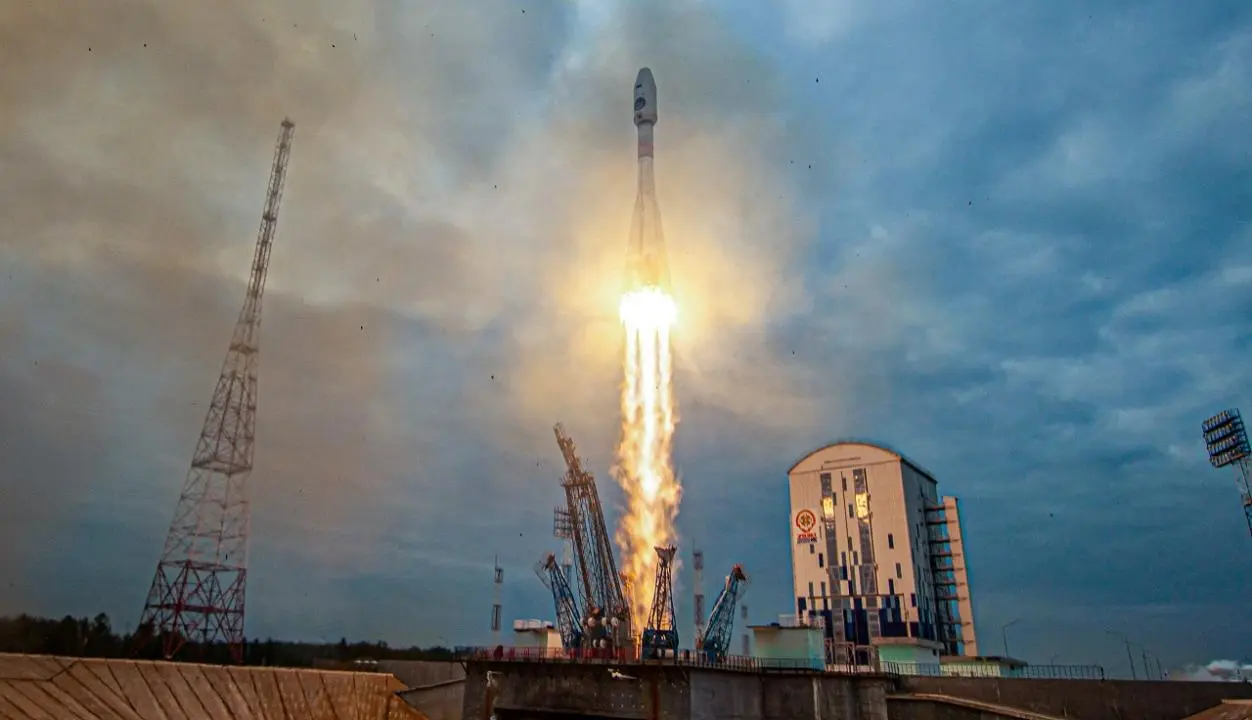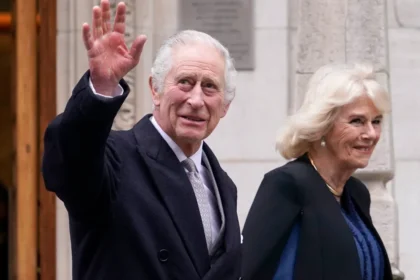Russia’s dreams of lunar exploration suffered a significant setback as its ambitious lunar lander, Luna-25, crash-landed on the moon’s surface shortly after an anomaly disrupted its maneuvers. This unfortunate incident occurred merely a day after Russia’s space agency, Roscosmos, had raised concerns about the spacecraft’s ability to execute necessary maneuvers, dashing hopes of a successful lunar landing. The mission was a crucial step for Russia, aiming to reignite its lunar exploration program, which had been dormant since the Luna-24 mission in 1976.
The Luna-25 Mission: A Bid for Lunar Exploration Revival
Launched with much anticipation from the Vostochny Cosmodrome on August 11, the Luna-25 mission was poised to make history by becoming the first Russian spacecraft to land on the moon since 1976.
The journey began smoothly as the Soyuz 2.1 rocket carried Luna-25 into space. By August 16, the spacecraft had entered the moon’s orbit, setting the stage for a soft landing on August 21. The mission was expected to mark Russia’s triumphant return to lunar exploration after decades of dormancy.
A Tragic Mishap: Luna-25’s Untimely End
The high-stakes mission, however, took a dramatic turn when Roscosmos reported an “abnormal situation” during an attempt to transition Luna-25 into a pre-landing orbit. Communication with the spacecraft was abruptly lost, and subsequent investigations confirmed the worst—a collision with the lunar surface had occurred. This marked the tragic end of Luna-25’s journey, leaving Russia’s lunar aspirations in disarray.
Implications for Russia’s Space Ambitions
The failure of the Luna-25 mission serves as a stark reminder of the challenges Russia faces in the contemporary space race, a far cry from the nation’s historic accomplishments during the Cold War. The incident highlights issues within Russian technology and competitiveness, despite substantial investments in space exploration.
The setback also deals a blow to Russia’s efforts to recapture its former glory in space exploration. Previous lunar missions, like the ill-fated 2011 Fobos-Grunt mission that failed to break free from Earth’s orbit, exemplify the complexities and challenges that Russia’s space program has faced in recent years.
Road to Luna-25: Delays and Challenges
The journey towards Luna-25 was fraught with difficulties, primarily stemming from the aftermath of the Soviet Union’s dissolution, coupled with subsequent political and economic turmoil. These challenges led to delays and setbacks that eventually culminated in the mission’s tragic end.
Rekindling Determination Amidst Setbacks
As Russia forges ahead in its lunar aspirations, the Luna-25 incident serves as a poignant reminder of the intricate nature of space exploration. While facing unforeseen obstacles, this incident is likely to ignite a renewed sense of determination within Russia’s space endeavors and scientific pursuits. The setback will undoubtedly prompt scientists, engineers, and policymakers to address the complexities of space exploration with renewed vigor.
The crash of the Luna-25 lunar lander is a stark testament to the formidable challenges inherent in modern space exploration. Russia’s aspirations of lunar exploration have been dealt a blow, highlighting technological shortcomings and the nation’s struggle to compete on the global stage. However, this setback is poised to inspire a fresh commitment to overcome challenges, fostering innovation and determination as Russia continues its quest for lunar exploration success.




